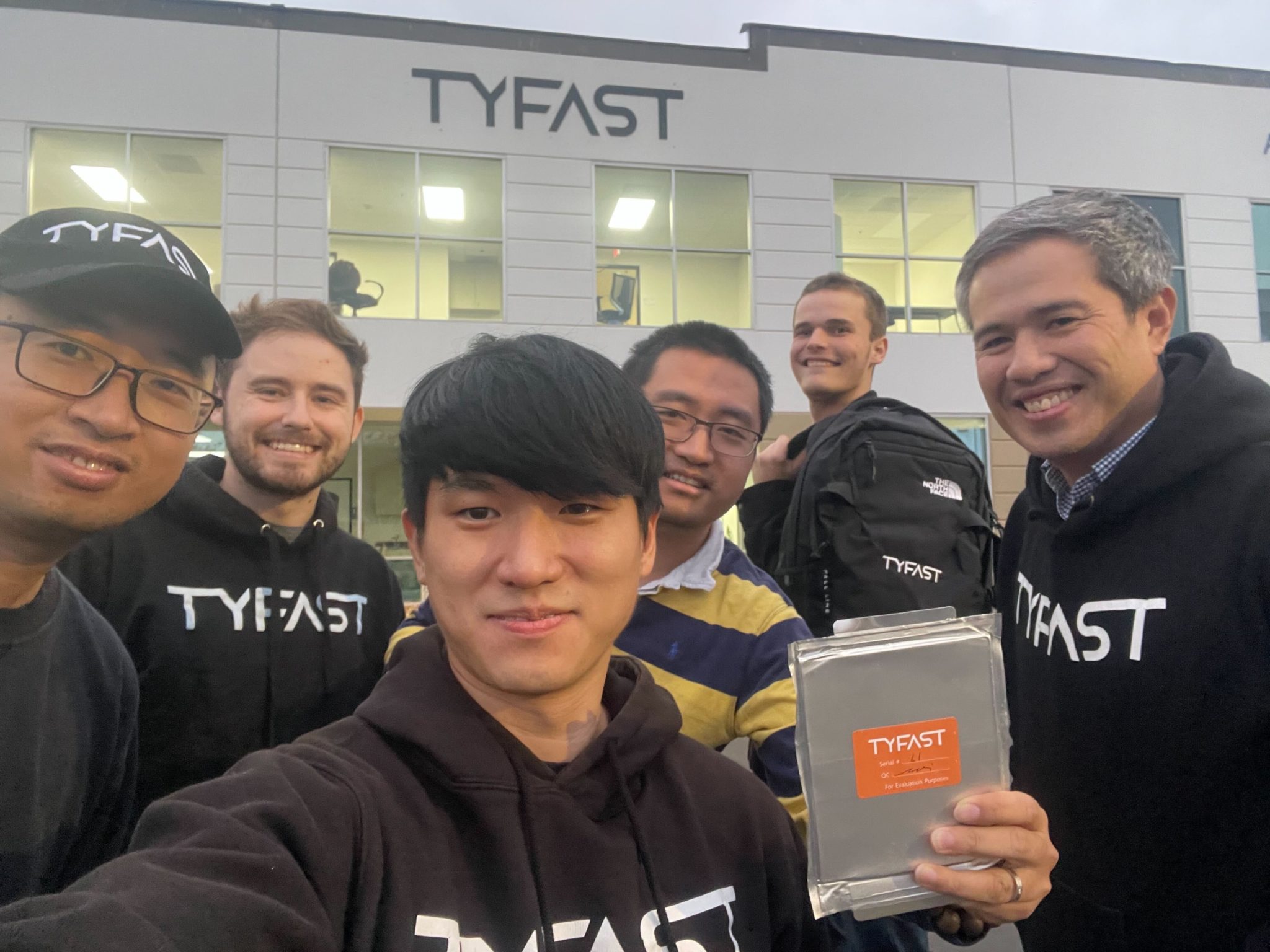A Q&A with GJ of Tyfast
We’ve been innovating on batteries for decades, but continue to come up short when it comes to displacing diesel-fueled vehicles for construction, trucking, mining and defense. Charging times, cycle life, safety and functionality in extreme temperatures are just some of the variables battery technology has to improve on in order to provide a reliable solution.
This is the exact technology that the Tyfast team has been working on. They’ve discovered a novel lithium vanadium oxide (LVO) anode material that can be incorporated into lithium ion cells for increased performance, and is sourced domestically here in the US. We’ve been huge fans of Activate fellow, GJ, Co-Founder and CEO, as well as the entire Tyfast team.
We recently sat down with them to better understand why they got so motivated to work in this industry, how they set themselves apart given the saturation of battery companies out there, and why building a company in San Diego, CA might be giving them an edge.
What personally got the team so motivated to work in batteries and what has been your biggest learnings as a founder and company-builder?
The Tyfast founding team is a group of energy storage geeks that care about the planet. Collectively, we’ve been working to advance and commercialize battery technologies to make a positive impact. The discovery of this novel LVO anode material and its breakthrough high performance provides the opportunity to accomplish this goal.
I led technology development at a grid-scale energy storage company for over 10 years before co-founding Tyfast. At my last company, we got to the doorstep of commercialization, but couldn’t achieve the commercial and environmental impact from that innovation. I’m aiming to deliver this all the way with Tyfast.
Haodong is an expert in lithium ion batteries with more than 110 papers, 8500 citations and 7 patents in the field. He co-invented the LVO anode material and aims to bring it to full commercialization.
Ping is a full Professor of NanoEngineering at UCSD and co-inventor of the LVO anode material. He has worked in energy storage and energy conversion for the past 30+ years. His past role as ARPA-E Program Director motivated his desire to spin out the technology from UCSD and make a positive impact to the world.
For me, the biggest learning in being a founder is that technologies can be amazing, but the ones that can make an impact need to have really strong customers that pull you out of the lab onto the commercial stage.
Given there’s so much innovation in the battery space across promising chemistries and manufacturing techniques, how do you set yourselves apart? What gives you the most confidence that you’re differentiated and have a path to true scale?
Tyfast has set itself apart by cutting through the noise of all the different battery applications and focusing on where we believe we have an unfair advantage - obsoleting diesel in workhorse vehicles used in construction, trucking, mining and defense.
This is a space with a unique set of differentiated requirements - high power, extended service life, extreme operating temperatures, and high equipment utilization - that really fit with the full set of technology features that Tyfast is able to deliver with our novel LVO anode technology.
The path to scale is enabled by strong raw material partnership and following a fabrication battery path that is compatible with widespread lithium-ion battery manufacturing. We’ve partnered with leading US-based material suppliers that can provide the metric tons of raw materials needed at high quality to allow us to scale. We’re using existing lithium-ion manufacturing equipment and processes to allow compatibility with factories and equipment to rapidly scale battery production in the coming years.
You’re one of a handful of climate tech companies based in San Diego, not in the Bay Area. Does this give you some type of advantage or edge?
Being in San Diego gives Tyfast a huge home field advantage!
We’re a UC San Diego spinout company and want to keep close ties to the UCSD and the community that supported our team and technology development. We’re a member of Cleantech San Diego and Southern California Energy Innovation Network that enables us to closely network with fellow cleantech companies for help in scaling, teaming and joint development. We want to work closely with the DoD and Defense Industry that has a huge presence in San Diego and all throughout Southern California.
Finally, we’re able to minimize talent competition against the massive tech companies in the SF/Bay Area that lowers our cost of hiring and leads to more capital efficient operations.
